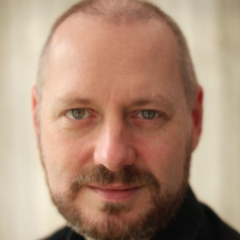What is the importance of breath control in opera singing?
Breath control is a fundamental aspect of opera singing that significantly impacts a singer's performance. In opera, singers must sustain long phrases with power and clarity, which requires exceptional breath management. This control allows the singer to maintain pitch, control dynamics, and deliver emotional expression effectively. Proper breath control also helps prevent vocal strain, ensuring the longevity of the singer's career. Techniques such as diaphragmatic breathing are essential, as they provide the necessary support for powerful, sustained singing. Moreover, effective breath control contributes to a singer's ability to project their voice over an orchestra without amplification, a hallmark of opera performance. Singers often work with vocal coaches to develop these skills, integrating them into their practice to enhance overall performance quality. By mastering breath control, opera singers can deliver performances that captivate audiences, showcasing the true power and beauty of their voices.
How can I improve my vocal range for opera singing?
Improving one's vocal range is a common goal for aspiring opera singers, as a wide range can enhance performance versatility. The process begins with regular vocal exercises that focus on stretching and strengthening the vocal cords. These exercises often involve scales, arpeggios, and interval training, which help singers reach notes at the extremes of their range. Working with a qualified opera singing instructor is crucial, as they can provide personalised guidance and feedback. Instructors can also help singers understand their voice type, ensuring that their practice aligns with their natural vocal abilities. Additionally, maintaining vocal health through proper hydration, rest, and avoiding strain is essential. As the singer's technique improves, they may find that their range naturally expands. However, patience and consistency are key, as vocal development is a gradual process. With dedication and expert instruction, singers can achieve significant improvements in their vocal range.
Are there any renowned opera singing instructors in Newark, England?
Newark, England, boasts a rich cultural scene, including several esteemed opera singing instructors. One notable instructor is Colin Reed, who has extensive experience in classical vocal technique. Colin studied with Howard Milner and has performed with professional opera companies across the UK and Northern Italy. His teaching is not limited to opera; he also covers music theatre, jazz, folk, and pop/rock. Colin's diverse background and comprehensive approach make him a sought-after tutor in Newark. Additionally, the town's proximity to cultural hubs like Nottingham and Lincoln provides students access to a broader network of music professionals and performance opportunities. Newark itself is steeped in history, with landmarks such as Newark Castle providing a picturesque backdrop for artistic endeavours. Students in Newark can benefit from this vibrant cultural environment, which enriches their learning experience and inspires their musical journey.
What unique opportunities are available for opera singing students in Doncaster, England?
Doncaster, England, offers a variety of unique opportunities for those studying opera singing. The town's vibrant arts scene includes numerous events and festivals, providing aspiring singers with platforms to perform and gain experience. Elena-Roxana H., a professional soprano based in Doncaster, offers personalised one-to-one tuition and has extensive stage experience, including roles in international festivals. Her classes incorporate cutting-edge techniques and focus on character interpretation, language pronunciation, and diction, essential skills for opera singers. Doncaster's cultural venues, such as the Cast Theatre, often host opera performances and workshops, enabling students to immerse themselves in the art form. The town's support for the arts, backed by organizations like Arts Council England, further enriches the learning environment. For students aspiring to a career in opera, Doncaster provides a nurturing and dynamic setting to grow and develop their craft, surrounded by a community passionate about the performing arts.
How do I prepare for an opera audition?
Preparing for an opera audition requires a strategic approach to showcase your vocal abilities and stage presence effectively. Start by selecting audition pieces that highlight your vocal strengths and suit your voice type. Ensure these pieces are well-rehearsed and memorised, as confidence in performance is crucial. Familiarise yourself with the character and context of each piece, allowing you to convey its emotional depth during your audition. Working with a vocal coach can provide valuable feedback and help refine your technique. Additionally, consider the logistical aspects of your audition: arrive early, dress appropriately, and bring all necessary materials, such as sheet music for the accompanist. Practising mock auditions can also help alleviate anxiety and build confidence. During the audition, focus on delivering a polished performance and engaging with the panel through your expression and interpretation. With thorough preparation, you can present yourself as a capable and compelling opera singer.
Can anyone learn opera singing, or do you need natural talent?
While natural talent can provide a head start in opera singing, it is not a prerequisite for learning this art form. Anyone with dedication and a willingness to work hard can develop the skills necessary to sing opera. The journey involves honing vocal techniques, such as breath control, resonance, and diction, which can be taught and refined with practice. Working with a skilled instructor is vital, as they can tailor lessons to the individual's strengths and areas for improvement. Additionally, understanding music theory and developing stage presence are skills that can be acquired over time. Regular practice and perseverance are key to overcoming challenges and progressing as an opera singer. While some may have an innate aptitude for singing, the majority of successful opera singers have achieved their level of proficiency through consistent effort and training. Therefore, the ability to learn opera singing is accessible to anyone willing to commit to the process.








